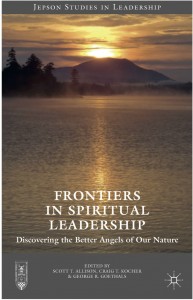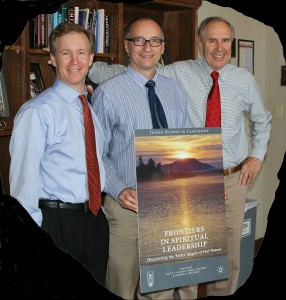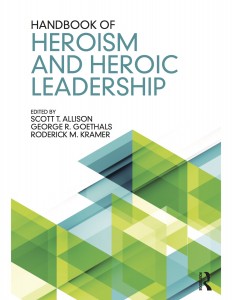 The Handbook of Heroism and Heroic Leadership represents the first effort to gather scholarship on heroism into one definitive reference volume.
The Handbook of Heroism and Heroic Leadership represents the first effort to gather scholarship on heroism into one definitive reference volume.
The Handbook showcases scholarly contributions from distinguished social scientists on the topics of leadership, morality, resilience, courage, empathy, meaning, purpose, altruism, hope, human growth, cooperation, spirituality, health, transformation, and character strengths. The volume provides a much-needed consolidation and synthesis for scholars of heroism and heroic leadership.
The Handbook of Heroism and Heroic Leadership features three conceptually distinct sections that reflect the current state of theory and research on heroism and heroic leadership. These sections are Origins of Heroism, Types of Heroism, and Processes of Heroism. The Origins of Heroism section focuses on the formation, causes, and antecedents of heroic action. Types of Heroism addresses phenomena associated with different categories of heroism and how these hero types affect individuals and society. Processes of Heroism examines the functions, processes, and consequences of heroism.
This volume offers insights and inspiration about the pinnacle of human behavior and how leaders can make use of these insights to help their followers reach their fullest potential. The Handbook provides a compelling foundation for the development of a multidisciplinary perspective on the antecedents and consequences of heroic behavior. The Handbook of Heroism and Heroic Leadership shines a scholarly light on all the gifted and enlightened leaders whose behavior has embodied the most exquisite qualities of humanity.
The Handbook is published by Routledge and is now available at Amazon.com.
Table of Contents
Foreword
Philip Zimbardo
Introduction
Setting the Scene: The Rise and Coalescence of Heroism Science
Scott T. Allison, George R. Goethals, and Roderick M. Kramer
Part I
Origins of Heroism
- Attributes and Applications of Heroes: A Brief History of Lay and Academic Perspectives
Elaine L. Kinsella, Timothy D. Ritchie, and Eric R. Igou
- Why Heroism Exists: Evolutionary Perspectives on Extreme Helping
Sara Kafashan, Adam Sparks, Amanda Rotella, and Pat Barclay
- Adaptive Foundations of Heroism: Social Heuristics Push Advantageous Everyday Ethical Behaviors to Heroic Extremes
Gordon T. Kraft-Todd and David G. Rand
- The Evolution and Neurobiology of Heroism
Stephanie D. Preston
- Character Development and the Emergence of Heroic Leadership: Towards a Relational Developmental Systems-Based Model
Kristina Schmid Callina, Richard M. Lerner, Ettya Fremont, Brian Burkhard, Danielle Stacey, and Shaobing Su
- The Moral Character of Heroes
Lawrence J. Walker
- Why and How Groups Create Moral Heroes
Ari Decter-Frain, Ruth Vanstone, and Jeremy A. Frimer
- The Hero Organism: Advancing the Embodiment of Heroism Thesis in the 21st Century
Olivia Efthimiou
Part II
Types of Heroism
- Everyday Heroes: Determinants of Moral Courage
Anna Halmburger, Anna Baumert, and Manfred Schmitt
- Heroism in Times of Crisis: Understanding Leadership During Extreme Events
Zeno E. Franco
- Holocaust Heroes: Heroic Altruism of non-Jewish Moral Exemplars in Nazi Europe
Stephanie Fagin-Jones
- Heroism and Wisdom in Medicine
Margaret Plews-Ogan, Justine E. Owens, Natalie May, and Monika Ardelt
- Deviant Heroes and Social Heroism in Everyday Life: Activists and Artists
Mihaly Csikszentmihalyi, Michael Condren, and Izabela Lebuda
- To Become or Not to Become? Existential Courage and the Pursuit of Desired Identities
Roderick M. Kramer
- Heroism in the Networked Society
Dana Klisanin
- A Training Program in Spiritually-Oriented Leadership: Inner Growth for Outer Change
Elsa Lau, Sarah B. Sherman, and Lisa Miller
- Career Development and a Sense of Calling: Contexts for Heroism
Bryan J. Dik, Adelyn B. Shimizu, and William O’Connor
- Underdogs as Heroes
Joseph A. Vandello, Nadav Goldschmied, and Kenneth Michniewicz
- Whistleblowers as Heroes: Fostering ‘Quiet’ Heroism in Place of the Heroic Whistleblower Stereotype
A J Brown
Part III
Processes of Heroism
- The Hero’s Transformation
Scott T. Allison and George R. Goethals
- Moral Transformation: The Paths to Heroism, Villainy and Victimhood
Amelia Goranson and Kurt Gray
- The Impact of Heroism on Heroes and Observers: Stories of Elevation and Personal Change
Jeanne Nakamura and Laura Graham
- Accidental and Purposeful Impediments to Heroism
Craig D. Parks
- Heroic Empathy: The Heart of Leadership
Ronald H. Humphrey and Laural L. Adams
- Heroic Leaders and Despotic Tyrants: How Power and Status Shape Leadership
Anika Stuppy and Nicole L. Mead
- The Intersection of Purpose and Heroism: A Study of Exemplars
Kendall Cotton Bronk and Brian R. Riches
- Heroism and the Pursuit of Meaning
Jeffrey D. Green, Daryl R. Van Tongeren, Athena H. Cairo, and Nao Hagiwara
- Psychopathy and Heroism: Unresolved Questions and Future Directions
Brett A. Murphy, Scott O. Lilienfeld, and Ashley L. Watts
- The Courage of One’s Moral Convictions: Exploring the Two Sides of Heroism
Ronnie Janoff-Bulman and Prerana Bharadwaj
Here’s what they’re saying about the Handbook of Heroism and Heroic Leadership:
“Editors Scott Allison, George Goethals and Roderick Kramer have assembled an outstanding team of contributors whose expertise ranges from neurobiology and evolutionary psychology to developmental approaches as well as spirituality, leadership, and career development. In addition to the variety of topics and approaches featured in this volume, readers will appreciate the uniform clarity of the presentations and their engaging style of academic storytelling.”
- Phil Zimbardo, Professor Emeritus, Stanford University, and Founder of the Heroic Imagination Project
“The study of heroes and exemplars is generating increasing excitement throughout the social sciences at the present time, and for good reason. We live in a time of diminished expectations for moral leadership and true heroism. This innovative Handbook of Heroism and Heroic Leadership draws on the best available science to help us understand the conditions that foster heroic leadership, and how it works across a variety of social contexts. The volume is an essential contribution to the study of human lives in all their full potential.”
- William Damon, Professor and Director, Stanford Center on Adolescence, author of The Path to Purpose
“Studying heroism is challenging for scientists, yet Allison, Goethals, and Kramer have assembled 30 chapters by knowledgeable authors who explore varied aspects of heroism. The result is a thoroughly impressive volume that surely is the key resource in this developing area of science. Professors could organize an outstanding course or seminar on heroism around these excellent chapters.”
- Alice Eagly, Professor of Psychology and James Padilla Chair of Arts & Sciences at Northwestern University
“Allison, Goethals, and Kramer’s Handbook marks the emergence of the study of heroes and heroism as a central concern of the social sciences. A handbook in the truest sense, the book’s well-organized and executed chapters—written by leading experts in the field—combine to form a foundation for the study of heroic leadership; they summarize current scholarly thinking, build thematic connections between subareas, suggest novel interpretations and insights, and identify future directions for theory, research, development, and application. This book is a goldmine of information essential for anyone seeking to better understand the ethical, psychology, interpersonal, and spiritual bases of heroism.”
- Donelson R. Forsyth, Colonel Leo K. and Gayless Thorsness Endowed Chair in Ethical Leadership at the University of Richmond
“This handbook is a comprehensive, informative, and exciting contribution to the literature on heroism and heroic leadership. Material on heroism tends to be scattered in many different places, and it is wonderful to have it at last in one place, in readable and engaging prose. I recommend the handbook most highly.”
- Robert J. Sternberg, Professor of Human Development, Cornell University
Like this:
Like Loading...
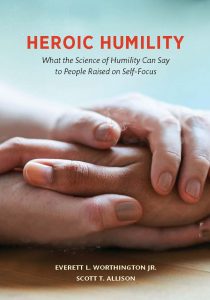 To become truly great, one has to stand with people, not above them.
To become truly great, one has to stand with people, not above them. By
By 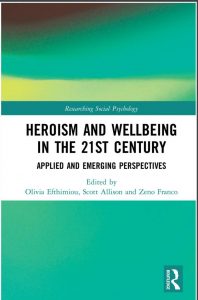 Offering a holistic take on an emerging field,
Offering a holistic take on an emerging field,  It has been hailed as a gorgeous river city blessed with abundant resources. It has also been called the city of “contradictions” and “crises” (Campbell, 2012), a city with a “complicated history” replete with “struggles and wounds” (Ayers, 2012; Schwartz, 2012). Richmond, Virginia, has been a magnet for heroism and villainy, a place where the best and worst of human nature have collided over several centuries.
It has been hailed as a gorgeous river city blessed with abundant resources. It has also been called the city of “contradictions” and “crises” (Campbell, 2012), a city with a “complicated history” replete with “struggles and wounds” (Ayers, 2012; Schwartz, 2012). Richmond, Virginia, has been a magnet for heroism and villainy, a place where the best and worst of human nature have collided over several centuries.

